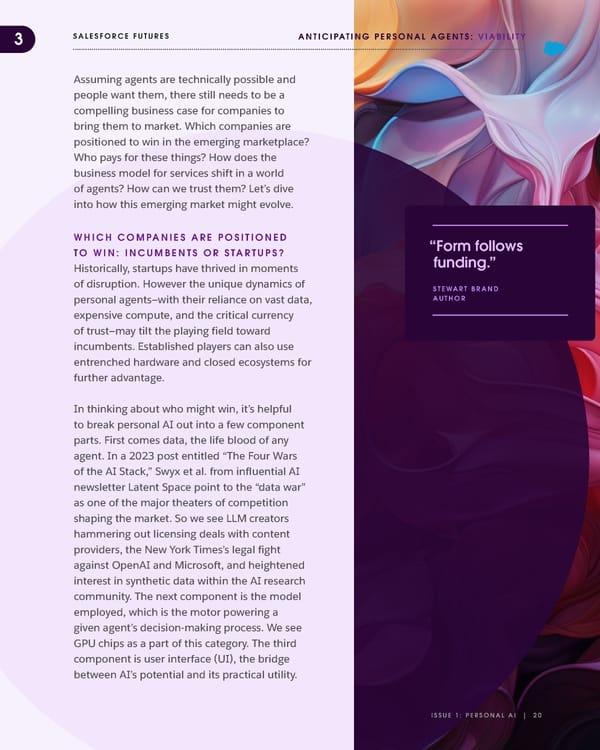3 SALESFORSALESFORCE FUTURESCE FUTURES ANTICIPATING PERSONAL AGENTS: VIABILITY Assuming agents are technically possible and people want them, there still needs to be a compelling business case for companies to bring them to market. Which companies are positioned to win in the emerging marketplace? Who pays for these things? How does the business model for services shift in a world of agents? How can we trust them? Let’s dive into how this emerging market might evolve. WHICH COMPANIES ARE POSITIONED “Form follows TO WIN: INCUMBENTS OR STARTUPS? funding.” Historically, startups have thrived in moments of disruption. However the unique dynamics of STEWART BRAND personal agents—with their reliance on vast data, AUTHOR expensive compute, and the critical currency of trust—may tilt the playing field toward incumbents. Established players can also use entrenched hardware and closed ecosystems for further advantage. In thinking about who might win, it’s helpful to break personal AI out into a few component parts. First comes data, the life blood of any agent. In a 2023 post entitled “The Four Wars of the AI Stack,” Swyx et al. from influential AI newsletter Latent Space point to the “data war” as one of the major theaters of competition shaping the market. So we see LLM creators hammering out licensing deals with content providers, the New York Times’s legal fight against OpenAI and Microsoft, and heightened interest in synthetic data within the AI research community. The next component is the model employed, which is the motor powering a given agent’s decision-making process. We see GPU chips as a part of this category. The third component is user interface (UI), the bridge between AI’s potential and its practical utility. ISSUE 1: PERSONAL AI | 20
 Salesforce Futures Magazine Page 19 Page 21
Salesforce Futures Magazine Page 19 Page 21